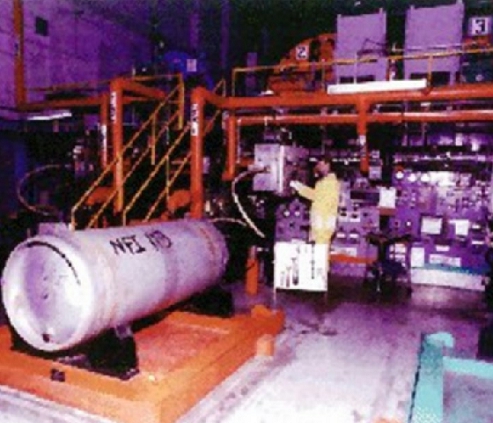

Part I: Three Levels of One Deal
"When talking about energy security why does everybody think that Russia should provide energy security for the world? Everybody forgets that Russia also needs in providing energy security. It is impossible to achieve equal cooperation in the world without this consideration", - Vladimir Putin, President of Russia believes.
It is very difficulty to argue with these words of Russian leader and there is no need. May be Russia had to cancel HEU-LEU deal, reconciling with the threats of multibillion losses? One can find another application for LEU obtained from excesses of weapons-grade plutonium than troublesome selling of it to USA.
If to formulate the question more correctly, could Russia use the threat of LEU-HEU agreement cancellation as one of arguments, which could convince Washington to reconsider its discriminating attitude towards Russian uranium, in particular, to cancel 116% duties for import uranium from Russia to USA?
First of all, let's try to look at the problem of Russian uranium by American State Department analysts' eyes.
Actually LEU-HEU provides 46% needs of all American reactors in separation work (3,5 million swu (separation work unit)). It seemed that refusal of Russia from further fulfillment of uranium deal will kneel USA. And Moscow, using quite admissible economic blackmail in real politik ideology, could achieve more acceptable Washington's conditions for itself in nuclear trade between two countries.
What can American nuclear society, in the first place, USEC corporation, oppose to Russia?
To all appearances, Washington thinks like this. White House is sure - cancellation of HEU-LEU agreement from Russian side won't damage USA energy security. Moreover, USA will be able to be independent from Russia without significant efforts and restart its expansion on the world uranium markets.
From the Americans' viewpoint, the current situation is absolutely winning for USA. Continuation of Russian LEU deliveries will mean keeping of cheap and the most advantageous source of enriched uranium up to 2013. If the deliveries are interrupted ahead-of schedule, then USA will be able to restore its enrichment potential without significant efforts and to return on the world uranium market, spoiling the reputation of its main competitor, the Russians.
Uranium trap for Minatom being arranged by the Americans with enthusiasm during fifteen years was operated successfully. But only USA nuclear industry itself also fell into this trap together with the Russians.
The logic of the State Department analysts' seems fair, when fulfilling one necessary condition. In accordance with the wish of HEU-LEU three-level architecture developers, USEC corporation became the owner of margin between price for buying swu from Russian counteragent and price for selling swu to the American end-consumers. And USEC should invest the most part or may be full part of this margin into construction of the first plant in USA for centrifuge enrichment of uranium in Piketon. Old gaseous diffusion enrichment plants in Paducah and Portsmouth can be used only in the case of force majeure, because the cost of uranium enrichment at these plants is higher than at modern Russian and European plants.
Just Piketon is the hope of the Americans for future decrease of USA dependence on deliveries of import swu. Megaproject "American centrifuge" passed a lot of ups-and- downs during its history and it seemed that profitable conditions of LEU-HEU deal for USA provided the go-ahead for this project. But private corporation USEC couldn't resist a temptation to find "other applications" for Russian uranium margin, and now there is simply shortage of money to complete construction of Piketon plant
"Immediately after USEC privatization, various accusations from incompetence till dishonest collusions and bribe- taking were brought to USEC… Financial situation in USEC is very difficult and the future of the program for uranium enrichment in USA is unclear… High overhead expenses and outdated technologies developed in 50-ies converted USEC's business to unprofitable and fully dependent on Russian subsidies", Bulletin of the Atomic Scientists" wrote in May, 2002.
There is no change since. "Operating organizations (in USA) hate USEC. The Russians hate USEC. DoE hates USEC", - "Financial Times", British newspaper writes. Under these conditions, enrichment corporation postpones statedly the date of putting into operation of plant in Piketon, continuously recalculate construction estimate in direction of its increasing, as well as permanently require additional subsidies from the Federal budget.
American generating power companies aren't satisfied with this situation in USEC. They are worrying about the prospects of nuclear fuel supply of own NPPs. Vice-president of Exelon, James Malone, addressed to participants of Fuel-Energy Congress in Moscow in 2006, called "Suspension agreement" not corresponding to today's requirements. Sharp growth of prices for uranium and the fact, that American courts recognized that uranium enrichment is "service", lead to aimless and even harmful antidumping protection introduced in USA against deliveries of uranium and swu from Russia. "Exelon corporation and other consumers of nuclear fuel in USA support the efforts of Russia to open American market", - Malone told.
But can Russia convince American administration that its practice of creating traps for partners is damaging? Is there a sense for Russia to continue uranium cooperation with USA? And what losses can we have from its termination?
Read about this and other issues in next articles of cycle "Trap for Minatom" on AtomInfo.Ru.
SOURCE: AtomInfo.Ru
DATE: September 08, 2007
Topics: NFC, Russia, USA, Uranium